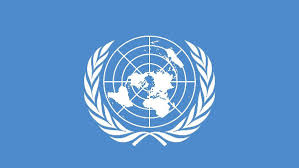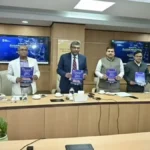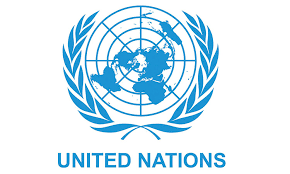UN Allocates $100 Million for Humanitarian Crises in 10 Countries
Overview of the Allocation
The United Nations has recently allocated $100 million to address humanitarian crises affecting ten countries worldwide. This substantial fund aims to provide immediate relief to regions grappling with severe emergencies, including conflict, natural disasters, and pandemics. The allocation is part of the UN’s broader strategy to enhance global humanitarian support and deliver crucial aid where it is most needed.
Breakdown of the Fund Distribution
The $100 million will be distributed among countries facing urgent humanitarian needs. This includes regions in Africa, the Middle East, and South Asia, where conflict and environmental factors have exacerbated the suffering of millions. Each country’s allocation will be determined based on the severity of the crisis and the immediate needs of affected populations. This strategic distribution is designed to maximize the impact of the aid and ensure it reaches those who need it most.
Objectives and Goals of the Initiative
The primary goal of this funding is to alleviate immediate suffering and provide essential services such as food, clean water, medical care, and shelter. The UN’s initiative also aims to support the implementation of emergency response plans and improve the resilience of communities to future crises. By targeting specific regions with acute needs, the UN hopes to stabilize these areas and pave the way for long-term recovery and development.
Collaborations and Implementation
The UN will work in collaboration with various humanitarian organizations and local governments to implement this funding effectively. Partnerships with NGOs and local agencies will ensure that the aid is delivered efficiently and reaches the most vulnerable populations. The collaboration also aims to build local capacities and foster sustainable solutions to ongoing humanitarian challenges.
Monitoring and Evaluation
To ensure the effectiveness of the allocated funds, the UN will implement a rigorous monitoring and evaluation process. This will involve tracking the distribution of resources, assessing the impact of the aid, and making adjustments as needed to address any emerging needs or challenges. Transparent reporting will be essential to maintain accountability and support continued donor confidence.

Why This News is Important
Addressing Immediate Needs
The UN’s allocation of $100 million is crucial for addressing immediate humanitarian needs in crisis-affected regions. This funding will provide essential resources to populations suffering from severe shortages of food, water, and medical supplies. By targeting these urgent needs, the initiative aims to prevent further deterioration of living conditions and stabilize affected communities.
Supporting Global Humanitarian Efforts
This significant allocation highlights the UN’s commitment to global humanitarian efforts and reinforces the importance of international solidarity in times of crisis. The funds represent a collective effort to respond to global emergencies and support vulnerable populations. This action underscores the role of international organizations in addressing global challenges and providing timely assistance.
Enhancing Emergency Response Capabilities
By supporting emergency response plans and local capacities, the UN’s initiative helps improve the overall effectiveness of humanitarian aid. Strengthening the ability of local organizations and governments to respond to crises contributes to more sustainable and efficient aid delivery. This approach not only addresses immediate needs but also builds resilience against future emergencies.
Promoting Transparency and Accountability
The emphasis on monitoring and evaluation ensures that the funds are used effectively and transparently. Regular assessments and reporting will help track the impact of the aid and maintain donor confidence. This commitment to accountability is vital for the success of humanitarian initiatives and for fostering trust among international partners.
Encouraging Global Cooperation
The allocation reflects the importance of global cooperation in addressing humanitarian crises. By mobilizing substantial resources and collaborating with various stakeholders, the UN demonstrates the power of collective action in tackling complex global challenges. This collaborative approach is essential for achieving meaningful and lasting impact in crisis-affected regions.
Historical Context
Evolution of UN Humanitarian Aid
The UN has a long history of providing humanitarian aid to crisis-affected regions, dating back to its establishment in 1945. Over the decades, the organization has expanded its efforts to address a wide range of emergencies, including natural disasters, conflicts, and pandemics. The allocation of $100 million is part of this ongoing commitment to support vulnerable populations and respond to emerging crises.
Key Historical Milestones
Significant milestones in the UN’s humanitarian efforts include the establishment of the Office for the Coordination of Humanitarian Affairs (OCHA) in 1991, which coordinates and oversees humanitarian responses. The UN’s response to major crises, such as the 2004 Indian Ocean tsunami and the Syrian refugee crisis, has demonstrated its capacity to mobilize resources and provide critical aid.
Recent Trends and Challenges
In recent years, the scale and complexity of humanitarian crises have increased, with ongoing conflicts and climate change contributing to more frequent and severe emergencies. The UN’s recent allocation reflects a growing need for international support and a proactive approach to addressing these challenges. The emphasis on monitoring and evaluation also highlights the importance of adapting to evolving needs and improving the effectiveness of humanitarian aid.
Key Takeaways from UN Allocates $100 Million for Humanitarian Crises
| # | Key Takeaway |
|---|---|
| 1 | The UN has allocated $100 million to address humanitarian crises in ten countries. |
| 2 | The fund will be distributed based on the severity of crises and immediate needs. |
| 3 | The primary goals include providing essential services and supporting emergency response plans. |
| 4 | Collaboration with NGOs and local governments will ensure effective implementation of the aid. |
| 5 | Monitoring and evaluation will be used to track the impact and ensure transparency and accountability. |
Important FAQs for Students from this News
1. What is the purpose of the UN’s $100 million allocation?
The UN’s $100 million allocation aims to address urgent humanitarian needs in ten countries affected by crises such as conflict, natural disasters, and pandemics. The funds are intended to provide essential services like food, clean water, medical care, and shelter.
2. How will the UN distribute the $100 million among the countries?
The allocation will be distributed based on the severity of the crises and the immediate needs of affected populations in each country. The distribution plan is designed to ensure that the aid reaches those who need it most.
3. Which regions are expected to benefit from this funding?
The funding will benefit countries in Africa, the Middle East, and South Asia. These regions have been identified as having acute humanitarian needs due to ongoing conflicts and environmental factors.
4. How will the effectiveness of the allocated funds be monitored?
The UN will implement a rigorous monitoring and evaluation process to track the distribution and impact of the funds. This process will include regular assessments and transparent reporting to ensure that the aid is used effectively and efficiently.
5. What role do local organizations and NGOs play in this initiative?
Local organizations and NGOs will collaborate with the UN to implement the aid distribution. Their involvement is crucial for ensuring that the aid reaches the most vulnerable populations and for building local capacities for emergency response.
Some Important Current Affairs Links

















